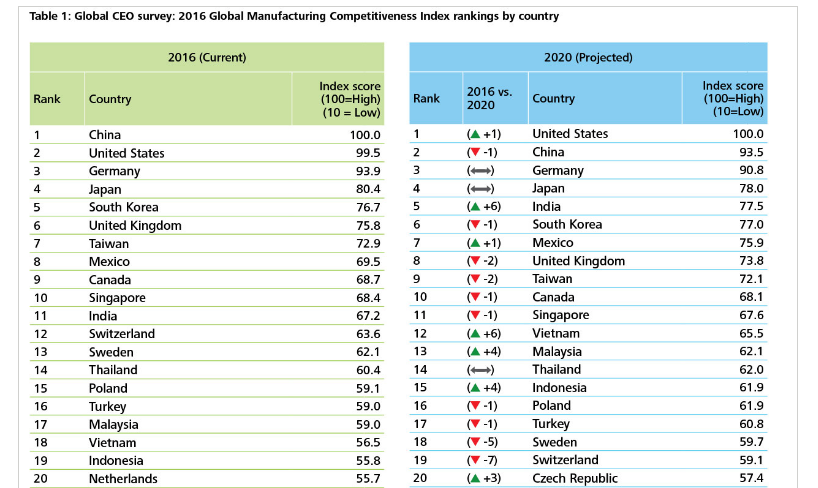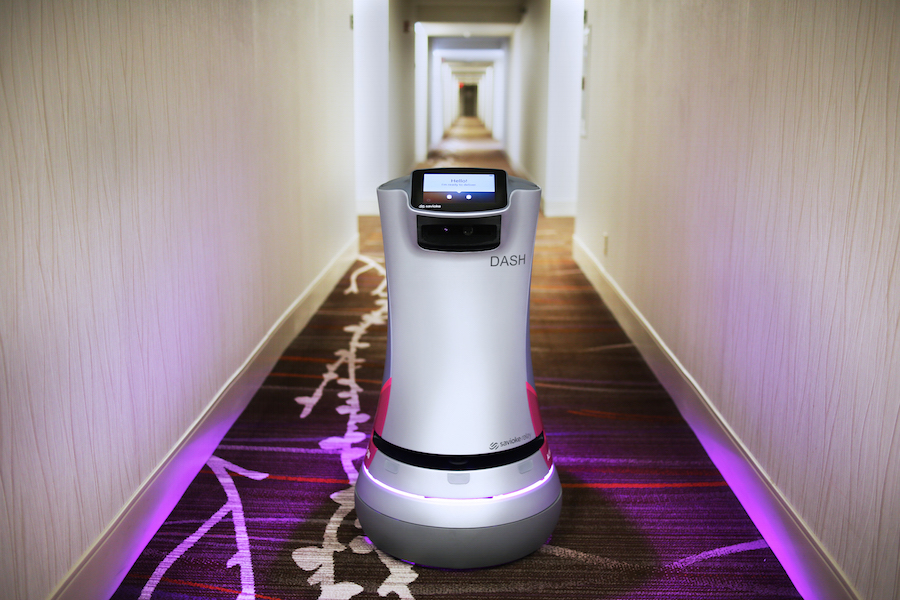
Robohub.org
A3 Business Forum: Our takeaways

A few insights from the 2016 A3 Business Forum. As always, a short and sweet event packed with insightful speakers, attendees and A3’s tried-and-true event success recipe. Here’s what captured our attention this year.
Alan Beaulieu’s prediction: A great depression… in 2030
Beaulieu’s predictions are always on the dot, and his public speaking skills are unparalleled. He has a knack for turning graphs into actionable knowledge that applies to our industry. Beaulieu is breaking economist stereotypes everywhere he goes.
Regardless of where you stand on the political spectrum, Beaulieu confirmed that statistic analysis has shown no correlation between business confidence or stock market performance and which party is in power. Even the impact of policy is not immediate: Beaulieu claims it takes a minimum of 18 months for big decisions to take effect in the market.
When it comes to the manufacturing industry, it is showing signs of growth, with US’s industrial production index at 3.5% growth year-over-year, and GDP growth is at a 10-year growth high of 1.9%.
What do those numbers mean for manufacturing in the US? It means the market is growing and it’s time to leverage this growth, take risks and invest in our business. Essentially prepare and build for the great depression, which Beaulieu is predicting for 2030-ish.
Beaulieu expects the main driver of this depression to be the health care for aging baby boomers, who will be in their 70s and 80s by then. Paying for those health care costs will come down to the taxpayer, a heavy burden for gen X and millennials. As Beaulieu explained, “The best thing we can hope for is the rapid death of baby boomers.” Cheerful.
Until then, time to build, time to grow and solidify our businesses. Beaulieu expects the USA to become the most competitive nation for manufacturing, projected to beat China in 2020. Manufacturing is already the 4th largest employer in the USA with 12.3 million employees.

Source: Global CEO survey: 2016 Global manufacturing competitiveness index rankings by country, Deloitte
Right now, manufacturers have a hard time filling their open jobs. Job openings in the manufacturing sector are at their highest volume in 8.5 years.
But what is the impact of robotics on those jobs?
Looking at employment forecasts, Beaulieu observed that robotics moves up with employment. Robotics is not destroying jobs, but making the manufacturing industry more competitive.
Beaulieu summed it well: “Your technology does not hurt a thing. Yes it disrupts, it’s advancing technology. The people who don’t want to keep up with tech, that’s on them. Robotics is the hero in this story. They are creating jobs and making our economy stronger and more competitive.”
The complexity of simplicity
Savioke’s Steve Cousins opened with this: “It’s hard enough to make something work, but then it’s 10 times harder to make it work easily.”

Cousins related the experience of designing human interaction with their mobile service robot. He reminded us of a very important fact: most people have never interacted with a robot before. We all know about robots because of movies and other media showcasing them, but for the great majority of people, they have no experience with robots in their daily lives.
What Cousins has seen with Savioke’s room service delivery robot, is that the value created by the robot is more than the labor savings that were expected. The robot becomes a feature of the hotel, showing up on Trip Advisor and attracting more guests.
In order to get to that effect, though, Cousins insists in making the robot simple by design. “People don’t read user’s manuals. You can’t depend on instructions to be followed, no matter how clear. You need to make this thing usable even by people who have never seen it before.”
Trust at the center of adoption
Robotics Hub’s Eric Daimler’s talk was quite complimentary with Cousins, focusing on adoption.
Daimler expanded on the importance of trust in the adoption of a technology. Trust comes from perceiving the technology as safe and non-threatening to one’s way of life.
Daimler used the introduction of the cotton gin, which led to a 25x increase in productivity. Contrary to what we might think: workers were not laid off. The productivity increased and drove price reductions, which stimulated demand for cotton and in the end employment in cotton production increased.
If we look at the more modern example, as plane accidents decreased, airline passengers have increased. This is how trust can be measured in an industry.
Daimler believes trust must be designed in the robot:
- People feel safer is the robot is smaller
- People will be more forgiving of robots with personality
The irresistible Lou Holtz’s game plan for success
If you even get a chance to attend a talk by the legendary coach, take it. Even if you know nothing about football and think Notre Dame is a church in Paris. Lou gave an entertaining talk full of stories from his life. Here are my note, unabridged.
Learn to work with the hand you’re dealt.
Give yourself time to grieve, then move on and look ahead.
Make sure everyone in the organization understands your core values.
Managers keep everything organized. Leaders sell a vision.
Understand where you are and where you want to go.
- What sacrifice are you really willing to make to achieve that?
- What skills and talent do you have to acquire to achieve that?
- Who do you have to work with?
- What’s your plan to get there?
4 things we need in life
- Stuff to do
- Someone to love
- Someone to believe in
- Something to hope for
WIN: what’s important now?
3 rules to build a winner:
- Do what’s right
- Do everything to the very best of your abilities
- Show people you care
3 questions people ask about you:
- Can I trust you?
- Are you committed to excellence?
- Do you care about me?

tags: c-Events





